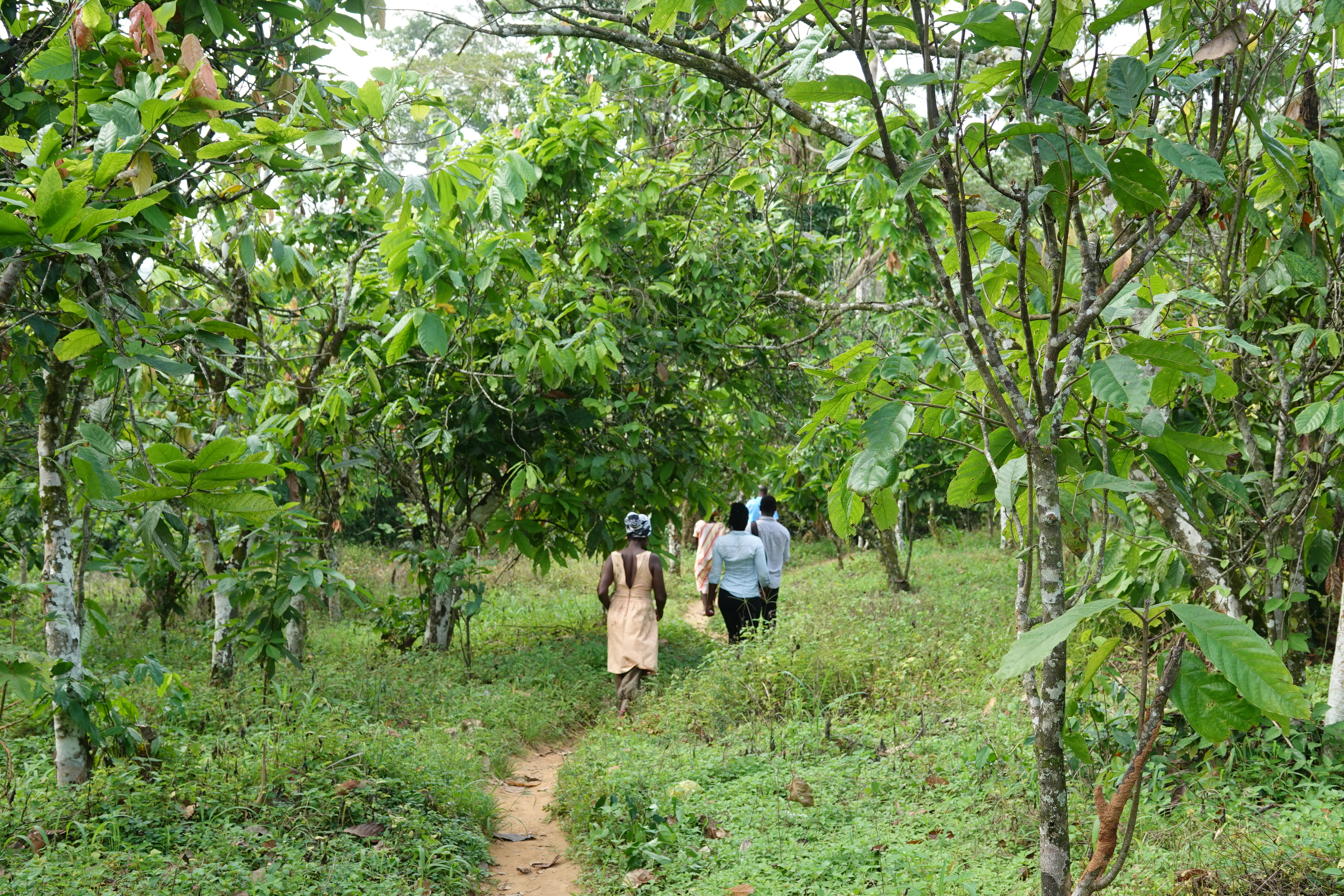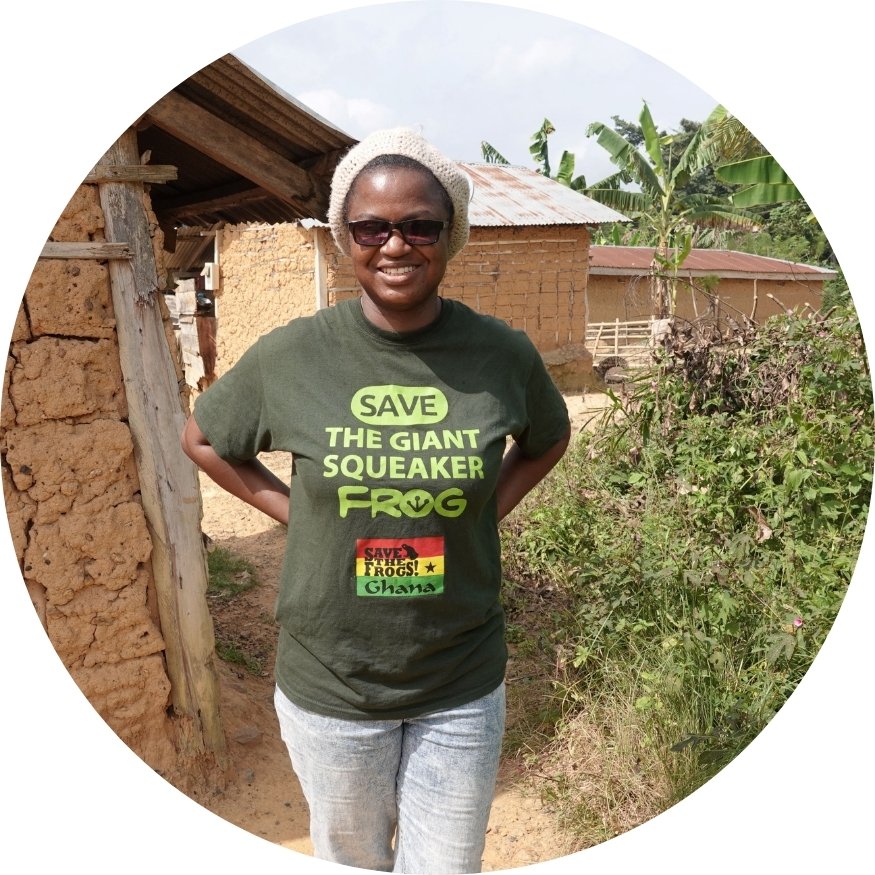
Interview of Sandra OWUSUGYAMFI, Executive director of Save Ghana Frogs, Ghana
Published on 9 July 2024Mrs Sandra, you are the Associate Executive Director of Save Ghana Frogs. Tell us about your organization.
I am currently serving in the capacity as the Strategic Planning Director of Save Ghana Frogs. Save Ghana Frogs is West Africa’s first non-profit NGO dedicated exclusively to amphibian research and conservation. Our journey started about 15 years ago when the first research team led by the founder, Gilbert Adum rediscovered the now critically endangered Giant Squeaker Frog (Arthroleptis krokosua). Our main focus as an organisation is been to protect the species together with other frogs within their natural habitats thus, it is very important to us to work closely with local communities fringing such core amphibian areas to provide a holistic and sound conservation solutions.
When and under what circumstances did you personally decide to commit yourself to Nature?
I was exposed to the natural world at a very early age. I was born in a village by the only natural lake in Ghana, Lake Bosomtwe – a blessing indeed. However, sometimes when you are close to a natural wonder and see it every day, you are likely not to pay too much attention to it. It was during my undergraduate degree at the Kwame Nkrumah University of Science and Technology, that the love and passion to commit myself to nature was nurtured. I will first credit my Wildlife lecturer, Dr. Rev. Acheampong who introduced the class to Dr. Jane Goodall’s work on Chimpanzees in Tanzania. I was amazed by her commitment and the knowledge this young non-African lady was contributing to science. I started binge watching documentaries about her and wildlife in general and I just couldn’t stop. I then pursued a Masters in Environmental Conservation to prepare me for a career in conservation. Ten years on and I have had a very fulfilled career in biodiversity conservation.
In your opinion, what is the greatest victory of Save Ghana Frogs?
I would say that working to prevent the imminent extinction of the Giant Squeaker Frog. Our data on the species (breeding pairs, occurrence, habitat preferences and state of its habitat, e.t.c) have provided much needed information about this rare species who’s documented global numbers is less than 50 individuals. Through much needed interventions, we have replanted with +50,000 native trees in about 30-ha of degraded areas within its last stronghold – Sui River Forest Reserve in south-western Ghana. We have also supported households (250 and counting) with alternative livelihoods specifically, beekeeping, and mushroom and snail rearing. We have also elevated the status of Sui Forest into a Key Biodiversity Area (KBA). I see these interventions as a win for both the Giant Squeaker Frog and communities.
Who is the person who is currently your source of inspiration and why?
I have two women who have inspired me greatly, Jane Goodall and the late Wangari Maathai. I admire their tenacity and passion for research and nature protection. They were doing this at a time when women hardly worked in biodiversity conservation yet they remained resolute. Being one of a handful of female amphibian ecologists in West Africa, it is logically accurate for me to take inspiration from these trailblazers.
If you were an animal, you would be? Tell us why?
I probably will be say Hyperolius guttulatus. It is a beautiful frog with patterns which sometimes reminds me of African prints. It is amazing how much nature features in man-made objects even if it was purely coincidental.
If you had an extraordinary magical power, what would you want to change?
Get more African ladies pursuing careers in biodiversity conservation. We need to create a safe space in this field to encourage them to volunteer and also work fulltime.
What advice would you give to young Africans who, like you, want to get involved in the associative life for the benefit of Nature?
My advice to them will be, you do not need to be a professional or expert in biodiversity conservation to care and act to protect nature. We all depend on nature for our sustenance. Spend time learning about the natural world, its beauty and support of life on earth and see what little you can do to ensure we protect it for future generations. You could also volunteer with conservation organisations to see if you see yourself pursuing a career in conservation.
